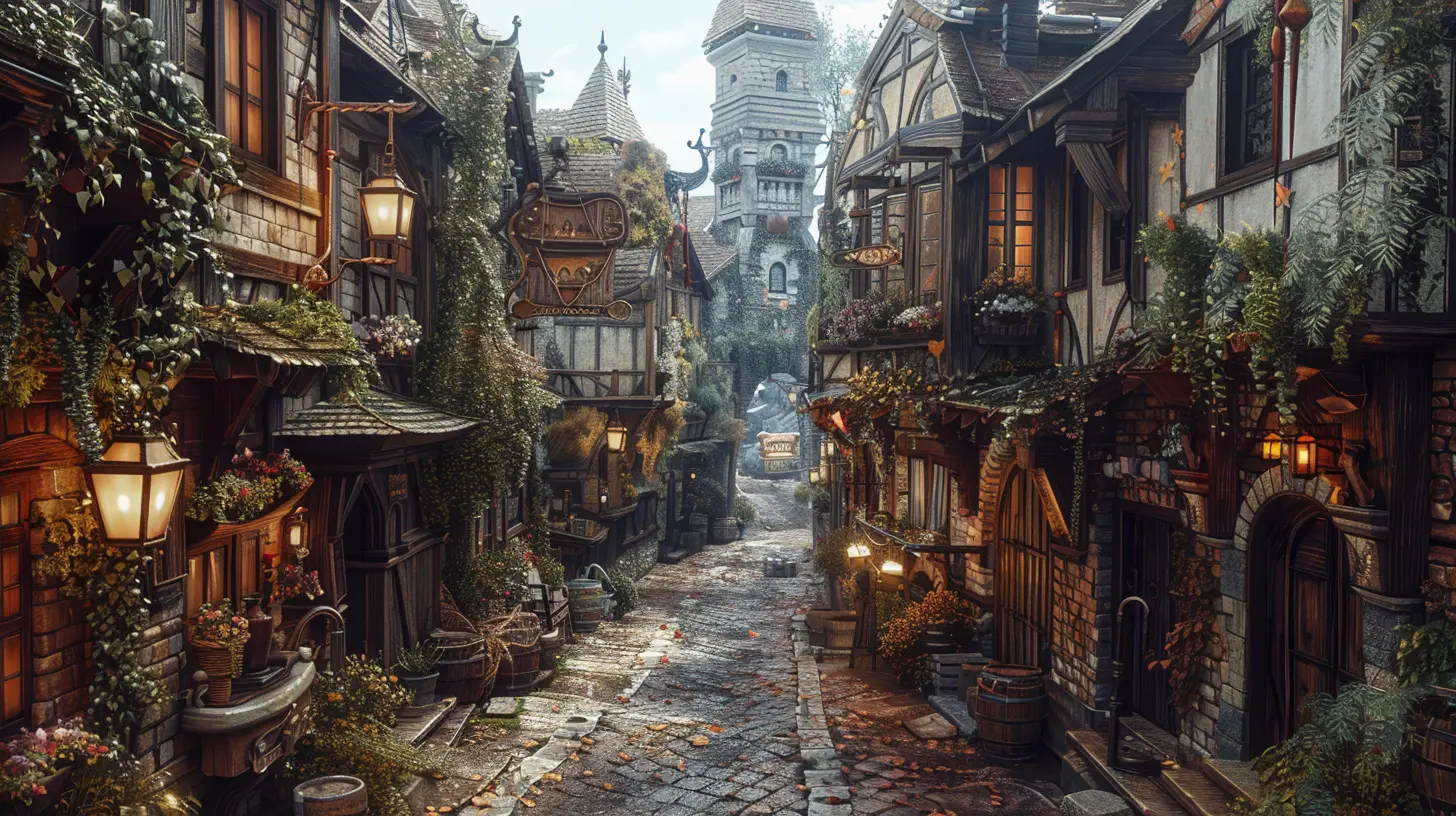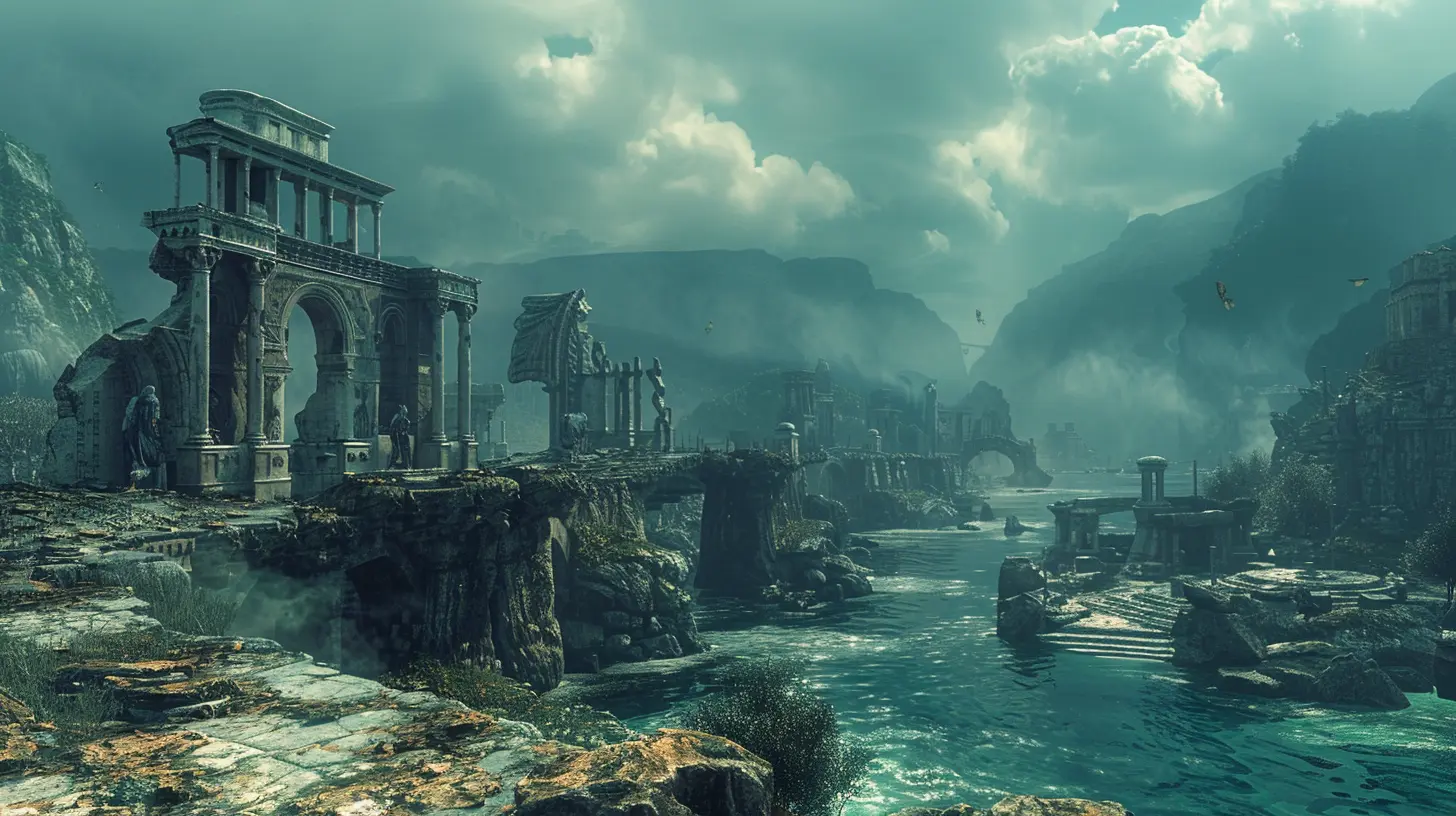Traveling Through Time in Game Environments
9 September 2025
Ever wished you could jump into a time machine and roam different eras without leaving your seat? Well, video games have been letting us do just that—no DeLorean required. From ancient civilizations to futuristic dystopias, time travel in gaming has become one of the most fascinating storytelling and gameplay mechanics in the industry. So buckle up, because we’re going to take a deep dive into how games bend time to create mind-blowing experiences.

Why Time Travel in Games Feels So Dang Cool
Let’s face it—there’s something irresistible about the idea of traveling through time. Wanna fight with swords in a medieval battle this morning and zap aliens with lasers in 3024 by lunchtime? In gaming, that’s totally possible. Time travel lets you mess with cause and effect, change the course of history, and create alternate realities. It offers players a playground where imagination has no limits. It breaks the rules—and who doesn’t love breaking the rules once in a while?Whether time is a plot device or a full-blown mechanic, it adds depth and complexity to the gameplay. Instead of just going from point A to B, you’re warping through centuries, altering events, and solving puzzles that would make Einstein sweat.

The Many Flavors of Time Travel in Games
Not all time-travel games follow the same blueprint. Developers have cooked up some pretty creative ways to let players hop around the timeline. Let’s break it down.1. Story-Driven Time Travel
These are your rich narrative adventures where time travel is baked into the plot. Think of it as watching an epic time-travel movie—but you’re the director, actor, and editor all rolled into one.🕹 Examples:
- Life is Strange – You control time to change decisions and their outcomes. A butterfly flaps its wings, and boom—your best friend is either alive or dead.- The Legend of Zelda: Ocarina of Time – You bounce between young Link and adult Link, watching a once joyful world turn into a shadowy wasteland.
Here, time travel doesn’t just spice up the story—it becomes the story.
2. Gameplay-Driven Time Travel
Now we’re getting into the real geeky fun. These games use time manipulation as a core gameplay mechanic. It's not just about watching the story unfold—you're actively bending time to your will.🕹 Examples:
- Prince of Persia: The Sands of Time – Made a clumsy jump off a cliff? Just rewind time like you’re scrubbing a YouTube video.- Braid – Time is literally a puzzle. You can rewind or slow it down to solve mind-bending platform challenges.
These games give you control over time, and it turns the whole concept on its head. You're not a passive time traveler—you’re the clockmaker.
3. Time Loops
Think Groundhog Day meets video games. You're stuck in a loop, reliving the same timeframe until you figure out how to break the cycle. It’s frustrating, fascinating, and incredibly satisfying when done right.🕹 Examples:
- The Forgotten City – Break the "golden rule" and the whole city turns to gold. You’ll need to re-loop your way through Roman life until you save everyone—or at least yourself.- Outer Wilds – You’ve got 22 minutes before the sun goes kaboom. Use each run to uncover secrets hidden across the solar system.
Time loops turn failure into learning. Every death is just a lesson in disguise.
4. Alternate Timelines & Parallel Universes
This is where things get wild. A choice you make in the past creates a ripple effect, spawning entirely different futures. It’s the ultimate "what if" scenario.🕹 Examples:
- Bioshock Infinite – Travel through tears in reality. Every decision, every word—ripples through other timelines.- Chrono Trigger – Change something in prehistoric times and watch it impact the future. Forget butterfly effect—this is T-Rex effect.
These games explore how small actions can echo through ages—something that really gets you thinking even after you’ve powered down the console.

Why Game Devs Love Time Travel Mechanics
Time travel gives developers a goldmine of creative ideas. Think about it: with one mechanic (time travel), you unlock multiple environments, story arcs, and gameplay twists. You can set one level in the post-apocalypse, and the next in ancient Rome—and it all makes sense!Plus, games with time mechanics offer massive replayability. Players want to go back, make different choices, unlock hidden endings, or just mess around with events to see what changes. It keeps the community buzzing long after launch day.

How Time Travel Enhances Immersion
There’s a reason why so many players get obsessed with time-travel games. They suck you in. When done right, they don’t just tell you a story—they let you interact with it, break it, and reshape it.You get to experience the consequences of your actions in a super direct way. You make a wrong decision? Go back and fix it. Or don't—and watch the chaos unfold. That emotional connection with the narrative? Chef’s kiss.
Challenges of Making Time Travel Work in Games
Okay, real talk. Time travel in games isn’t all sunshine and flux capacitors. It’s brutally complex to code and even harder to explain without melting your brain.Some things devs have to tackle:
- Continuity and consistency – One small change in the past can break everything in the timeline. It's like walking a tightrope while juggling flaming swords.
- Narrative clarity – Time travel plots can get confusing real fast. The last thing you want is your player needing a PhD to understand what's happening.
- User experience – Letting players manipulate time needs to feel smooth and intuitive, not like programming a VCR from the '80s.
Balancing all these elements is what separates the great time-travel games from the forgettable ones.
Indie Devs vs AAA: Who's Winning the Time Race?
Surprisingly, indie developers have been kicking serious butt with time travel mechanics. Without the pressure of massive budgets, they’re free to experiment and get weird with it. Titles like The Forgotten City and Braid show how small teams can deliver jaw-dropping time mechanics with soul.That said, AAA games bring in the muscle with big narratives and dynamic worlds. Assassin’s Creed plays loosely with historical timelines. Final Fantasy VII Remake even dipped its toe into timeline manipulation.
So who’s winning? Honestly, we are. Players get the best of both worlds—innovation from indie devs and polish from the big guys.
The Future of Time Travel in Gaming
We’re just scratching the surface here. As gaming tech keeps evolving—think AI, quantum computing, procedural generation—we’re likely to see even more ambitious takes on time-travel mechanics.Imagine real-time global events that shift based on collective player choices across time zones. Or AI characters that remember and adapt to your actions across multiple timelines. Heck, we might even get time-travel VR where you can literally look over your own shoulder in the past.
One can dream, right?
Tips for Players Diving Into Time-Travel Games
Starting your journey through time? Here’s a few pro tips:- Pay attention to details. Clues about future events often lurk in random dialogue or small environmental hints.
- Experiment. Don’t be afraid to try different choices or paths—time's on your side, remember?
- Take notes. Especially in loop-based games. Keeping track of info can be your best weapon.
- Embrace failure. You’ll mess things up. That’s not defeat—that’s just another timeline.
Must-Play Time Travel Games (If You Haven’t Already)
Here's your cheat sheet of classics and hidden gems that mess with time in the best ways.| Game Title | Time Mechanic Type | Platforms |
|------------|--------------------|-----------|
| Chrono Trigger | Alternate Timelines | SNES, PC, Mobile |
| Life is Strange | Rewind Decisions | PC, PS, Xbox, Switch |
| The Forgotten City | Time Loop | PC, PS, Xbox, Switch |
| Prince of Persia: Sands of Time | Rewind / Time Jump | PC, PS, Xbox |
| Braid | Puzzle-Based Time Manipulation | PC, Xbox, PS, Switch |
| Outer Wilds | Time Loop Exploration | PC, PS, Xbox |
| Bioshock Infinite | Parallel Universes | PC, PS, Xbox |
Seriously, if you haven’t played at least a few of these, go fix that. Future you will thank current you.
Final Thoughts: Why Time Travel in Gaming Just Works
Time travel isn’t just a gimmick—it’s a storytelling powerhouse. It challenges how we think about decision-making, consequence, and control. Video games take the abstract idea of time and put it in your hands. You’re not just watching history—you’re rewriting it.Whether it’s rewinding a mistake or looping your way out of a curse, each time-hop delivers something unique. And the best part? We’re still at the early stages of what’s possible. Time travel in game environments isn’t going anywhere—and honestly, it might just become the future of immersive storytelling.
So next time you pick up that controller and step into another timeline, remember: you're not just playing a game—you're bending reality.
all images in this post were generated using AI tools
Category:
Game WorldsAuthor:

Leandro Banks
Discussion
rate this article
1 comments
Lysander Phillips
This article effectively explores how game environments utilize time travel to enhance narrative depth and player engagement. By juxtaposing different eras, developers create rich, immersive worlds that challenge players' perceptions of causality and consequence. The mechanics of time travel not only serve as a plot device but also enrich gameplay experiences remarkably.
September 10, 2025 at 3:01 AM

Leandro Banks
Thank you for your insightful comment! I'm glad you found the exploration of time travel in game environments to be engaging and impactful.


